You are using an out of date browser. It may not display this or other websites correctly.
You should upgrade or use an alternative browser.
You should upgrade or use an alternative browser.
India Corona thread
- Thread starter Nilgiri
- Start date
India’s Vaccine Colossus Is a Model for the World to Follow
Serum Institute to manufacture vaccines not just for the world’s second-most populous country, but likely many others too
By
Mike Bird
Jan. 6, 2021 6:01 am
India has authorized two Covid-19 vaccines for use, putting its enormous vaccine-manufacturing capacity in the spotlight. Large parts of the rich world may have something valuable to learn.
The Serum Institute of India is the world’s largest manufacturer of vaccines by volume, founded over 50 years ago by now-multibillionaire Cyrus Poonawalla. It will likely provide not only almost all the vaccines administered in India, but many elsewhere in the world too, once exports are permitted later in the year.
Research by Fitch Solutions outlines three groups of Asian economies this year: Those that can plausibly vaccinate most of the people in priority groups such as health-care workers and the elderly by June, those that can do so by September and those that will take longer. India is by some distance the lowest-income country in the first group of economies, which includes Hong Kong, China, Singapore and Malaysia. Wealthier South Korea and Thailand will take longer.
The Serum Institute’s work requires a reliable and large domestic supply of the vials in which the vaccines are sealed and transported, ensured by companies such as Schott Kaisha and Piramal Glass. The existence of the world’s largest vaccine manufacturer helps to establish the basis for a domestic network of suppliers.
Global supply chains and international trade have actually held up remarkably well under extreme circumstances over the past year. There is no need to reshore enormous amounts of manufacturing capacity, and any attempt at even halfway autarky will make all parties involved—importers and exporters—less prosperous.
But countries could take a leaf from India’s book when it comes to manufacturing crucial items that might encounter massive demand surges, and where national priorities come to the fore. Doing so is unrealistic for every small and middle-size country, but production could be organized at the level of regional blocs such as the Association of Southeast Asian Nations. The pandemic hit Latin America harder than many other parts of the world, but its limited vaccine production means most nations there have a long wait ahead of them.
Workers at the Serum Institute of India in Pune.
Such a company need not be a government enterprise. As noted, the Serum Institute was founded as and remains a private company, though it cooperates closely with the government. Establishing similar capacity could be achieved by cooperation on health-care regulation to create large regional markets, and the right financial incentives. The principle applies as clearly to personal protective equipment as it does to vaccines.Many far richer countries have fretted about shortages of such vital components because they are usually imported, and supplies are now uncertain with demand sky-high. Given the achingly slow pace at which European vaccines are being rolled out, the Indian program may well end up as a model for the world.
[/URL]
I think I replied to you somewhere.Haffkine Institute in Bombay is very well known.
Going back to the original theme, somebody who turned completely toxic on PDF is a present employee at the Serum Institute. He likes to keep his real-life identity secret, lest some ISI operative come in and cut his throat. You will no doubt guess who he is.
Haha. I've signed up for the vaccine from SI - hopefully, it should be safe.I think I replied to you somewhere.
Going back to the original theme, somebody who turned completely toxic on PDF is a present employee at the Serum Institute. He likes to keep his real-life identity secret, lest some ISI operative come in and cut his throat. You will no doubt guess who he is.
Haha. I've signed up for the vaccine from SI - hopefully, it should be safe.
D
dBSPL
Guest
Today I read that a fire broke out in hospital at Maharashtra and many babies died in the neonatal intensive care unit. I couldnt hold back my tears for children who died in there. I cannot express the sadness I feel. Frankly, I didn't want to open a separate title for this but I just want to express my deepest condolences to defensehub's Indian members.
Last edited by a moderator:
Yes, pretty shitty.Today I read that a fire broke out in hospital at Maharashtra and many babies died in the neonatal intensive care unit. I couldnt hold back my tears for children who died in there. I cannot express the sadness I feel. Frankly, I didn't want to open a separate title for this but I just want to express my deepest condolences to defensehub's Indian members.
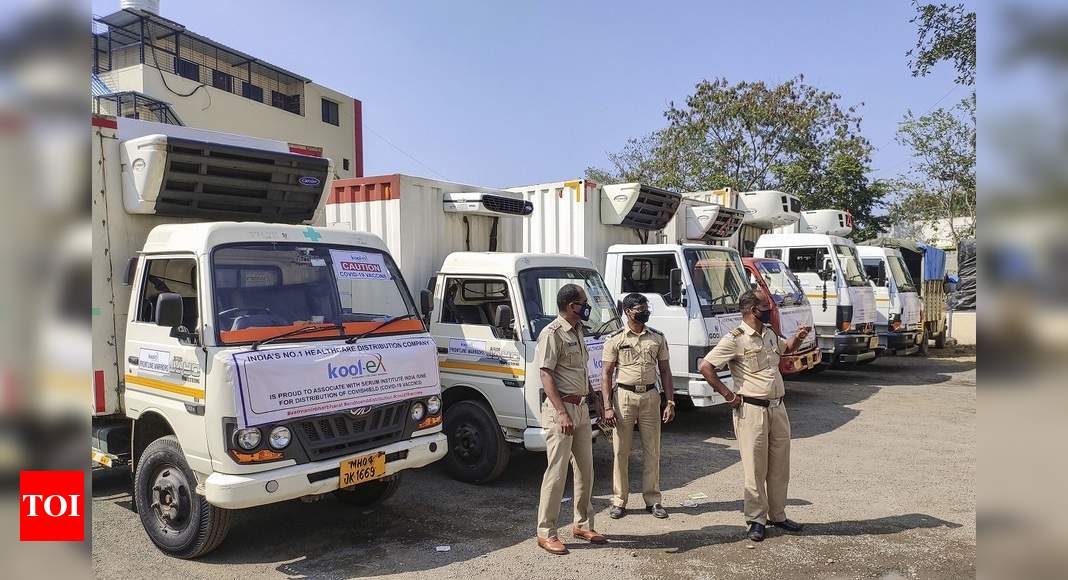
SII gets order for 11 million vaccine doses, trucks ready for transportation | India News - Times of India
India News: The process of transporting Covishield vaccine began on Monday after the Serum Institute of India (SII) received the Centre’s initial purchase order f
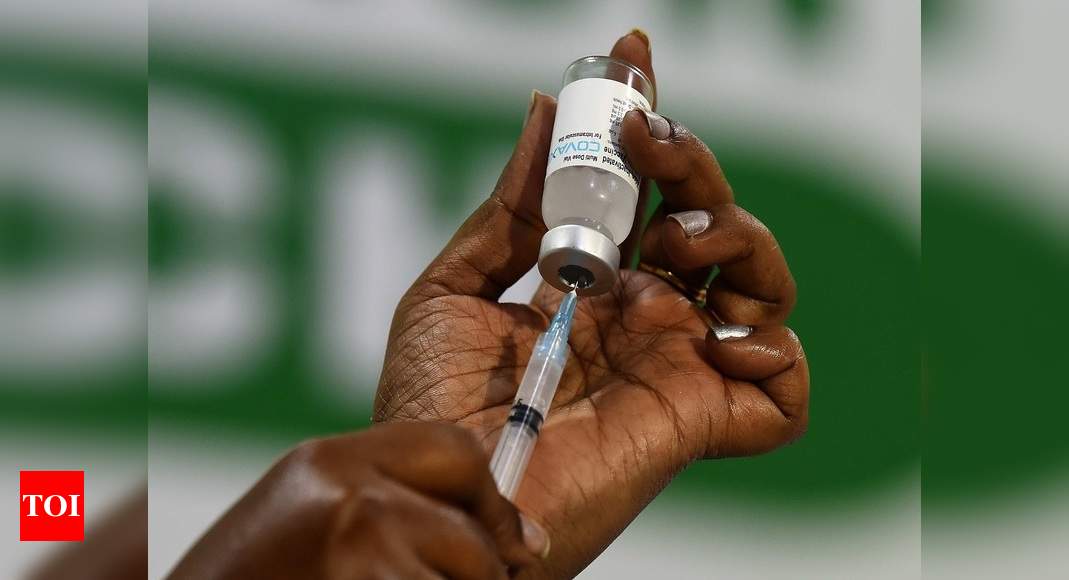
Coronavirus vaccine India: Amid efficacy row, Covaxin gets thumbs-up from Lancet | India News - Times of India
India News: Amid a raging controversy over the efficacy of Covaxin, India’s first indigenous Covid-19 vaccine, reputed medical journal the Lancet Infectious Disea
HYDERABAD: Amid a raging controversy over the efficacy of Covaxin, India’s first indigenous Covid-19 vaccine, reputed medical journal the Lancet Infectious Diseases on Friday said the vaccine produced tolerable safety outcomes and enhanced immune responses in its Phase 1 trials.
With this, Covaxin has become the first Covid-19 vaccine from India to have its data published in Lancet, said Suchitra Ella, joint managing director of Bharat Biotech, which is developing the vaccine in association with the Indian Council for Medical Research and the National Institute of Virology, Pune.
(More at link)
Would still prefer Covishield for now.
Coronavirus vaccine India: Amid efficacy row, Covaxin gets thumbs-up from Lancet | India News - Times of India
India News: Amid a raging controversy over the efficacy of Covaxin, India’s first indigenous Covid-19 vaccine, reputed medical journal the Lancet Infectious Diseatimesofindia.indiatimes.com
HYDERABAD: Amid a raging controversy over the efficacy of Covaxin, India’s first indigenous Covid-19 vaccine, reputed medical journal the Lancet Infectious Diseases on Friday said the vaccine produced tolerable safety outcomes and enhanced immune responses in its Phase 1 trials.
With this, Covaxin has become the first Covid-19 vaccine from India to have its data published in Lancet, said Suchitra Ella, joint managing director of Bharat Biotech, which is developing the vaccine in association with the Indian Council for Medical Research and the National Institute of Virology, Pune.
(More at link)

Booster shot for India: Novavax vaccine shows 90% efficacy, J&J 66%
Novavax said its NVX-CoV2373 demonstrated a 90% efficacy in phase 3 trials in the UK, taking it closer to approval by the UK health authorities. J&Js single-dose vaccine showed an overall efficacy of 66% and 85% efficacy in preventing death (severe disease) across all age and ethnic groups.
Novavax Announces COVID-19 Vaccine Manufacturing Agreement with Serum Institute of India, Increasing Novavax’ Global Production Capacity to Over 2 Billion Doses Annually
Serum Institute of India to manufacture ~1 billion doses of NVX-CoV2373 in 2021Increases global manufacturing capacity for NVX-CoV2373 to over 2 billion...
India's Biological E. to start vaccine late-stage trials in April - executive
BENGALURU — India’s Biological E. Ltd plans to start large late-stage trials of its potential COVID-19 vaccine candidate in April next year, according to a top exec…
Seems about 1 billion planned production (for each) within India in 2021. = around 2 billion shots in total. This adds on top for oxford-astrazeneca and covaxin.
@Indos
2021 vaccine diplomacy must be gently and appropriately used to further strengthen certain alliances for India.
(More on this later in another thread when I get time for it).
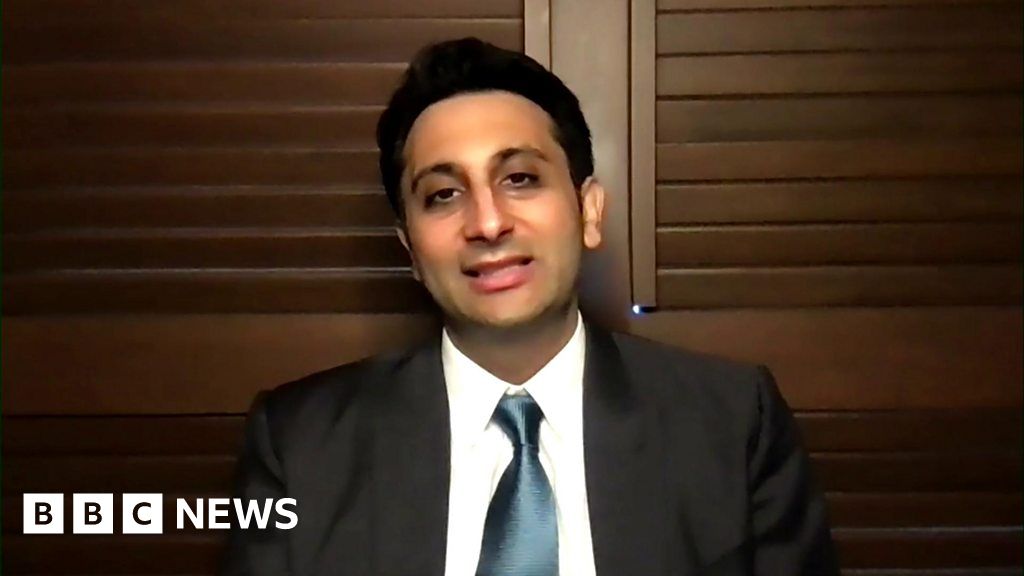
Covid: How this Indian firm is vaccinating the world
The Serum Institute of India isn't a household name, but it's the world's largest vaccine maker.
As pharmaceutical giants ramp up production in the race to vaccinate the world, one firm has shot into the lead.
The Serum Institute of India (SII) isn't a household name, but it's the world's largest vaccine maker.
The firm churns out 1.5 billion doses every year from the company's vast manufacturing plant in Pune, Western India.
It is currently making Covid vaccines under license for pharmaceutical firms such as AstraZeneca.
"We took a huge calculated risk", by betting on several vaccines in 2020 before regulators had even approved of them, SII's chief executive Adar Poonawalla told the BBC.
"It wasn't a blind risk, because we knew the Oxford scientists from our earlier collaboration with the malaria vaccine."
SII is privately owned, which enabled fast decision-making between Mr Poonawalla and his scientists.
But funding proved a challenge. The firm invested around $260m (£186.7m) and raised the rest from philanthropists, such as Bill Gates, and advances from other countries.
SII managed to secure $800m by May 2020 to make multiple Covid vaccines.
Stashing away doses
How did SII actually scale up production? In April 2020, Mr Poonawalla calculated what they would need, from vials and filters."I got 600 million doses worth of glass vials ahead of time and locked it in my warehouse by September," he explained.
"The most important part that enabled us to have so many doses - 70-80 million in January - was because I started manufacturing at risk in August."
"I wish other companies also had taken that risk, because the world would have had many more doses."
Mr Poonawalla criticised the patchwork of global regulatory systems and lack of harmonisation for production delays.
He said the major regulators, including the UK's Medicines and Healthcare products Regulatory Agency (MHRA), the European Medicines Agency (EMA) and the US Food and Drug Administration (FDA), could have united and agreed a quality standard.
He also criticised national governments, claiming that regulators in the countries that are making the vaccines, from India to Europe, could have united to agree a standard international benchmark.
"Why can't we still harmonise it and save all this time, especially even for the new vaccines. I'd hate to have to go through all this again."
New variants
Mr Poonawalla played down concerns about new variants: "Anyone who has taken that [Oxford AstraZeneca] vaccine so far hasn't had to go to hospital or go on a ventilator and had their life at risk."They've also passed that disease on to others. So yes, it's not an ideal situation, but it has protected your life."
In India, SII is also involved the world's largest inoculation programme, to vaccinate 300 million by August. But, according to Bloomberg, only 56% of people eligible to get a shot have actually stepped forward.
"A lot of vaccine hesitancy traditionally has come about when either celebrities or non-experts have said vaccines are not safe," said Mr Poonawalla.
"I always just request celebrities and others who have this tremendous power on the social networks, to just be a bit responsible and read up on the facts before they say anything."

Criticized Indian Vaccine Already in Use Found 81% Effective
An Indian coronavirus vaccine that generated controversy when it was granted emergency approval before finishing its final stage testing has shown to provide strong protection against Covid-19 in an interim analysis of an advanced clinical trial.
Criticized Indian Vaccine Already in Use Found 81% Effective
ByChris Kay
March 3, 2021, 6:43 AM EST Updated on March 3, 2021, 8:03 AM EST
An Indian coronavirus vaccine that generated controversy when it was granted emergency approval before finishing its final stage testing has shown to provide strong protection against Covid-19 in an interim analysis of an advanced clinical trial.
Covaxin, which was co-developed by Hyderabad-based Bharat Biotech International Ltd. and the Indian Council of Medical Research, showed an efficacy rate of 81% in those without prior infection after a second dose, the company said in a statement Wednesday. That’s better than Bharat Biotech’s guidance last year of around 60% and the country’s benchmark of 50% for vaccines targeting the novel coronavirus.
The vaccine maker didn’t say if the efficacy rate was measured at protecting against all symptoms, including mild coughs, or just serious reactions to the disease that require hospitalization.
The findings cement Bharat Biotech’s claims of the vaccine being safe and may help overcome vaccine hesitancy as India rolls out one of the world’s biggest inoculation programs to contain its massive outbreak. The data is also a rebuttal for critics who had questioned the unprecedented haste with which the indigenously produced shot was approved in early January and deployed among India’s frontline health care workers even before providing any Phase 3 trial data.
Bharat Biotech’s Chairman Krishna Ella said in the statement that Covaxin has also shown “significant immunogenicity” against emerging variants. In a separate video address, he added that “many people criticized us.”
‘Challenging Task’
The Phase 3 trial that enrolled 25,800 participants aged 18 to 98 “was a challenging task for us,” Ella said. The interim analysis was based on 43 cases, of which 36 cases of Covid-19 were observed in the placebo group against seven cases seen in a set injected with Covaxin.In June last year, India’s drug regulator permitted the family-run and closely-held Bharat Biotech to develop a homegrown vaccine in record time. Soon after, work on Covaxin was bogged down by controversies ranging from unrealistic government schedules to sporadic reports of adverse reactions.
India Has Plenty of Coronavirus Vaccines But Few Takers
Despite the vaccine receiving the emergency use approval in January, many of those in the priority list for receiving the initial injections failed to turn up for their shots, concerned that they may be given the experimental vaccine. The sign ups among those willing to be vaccinated have improved in the past week after India’s government partially allowed a private market to open and expanded the campaign to those aged over 60 and 45 who were at risk.
Officials in New Delhi and the management of Bharat Biotech have vigorously defended the vaccine’s safety and effectiveness during the roll out. Prime Minister Narendra Modi was also injected with Covaxin on March 1 as he sought to allay fears around the shot and urged Indians to step forward for inoculation.
The new data may boost uptake in a nation that has registered the world’s second-largest outbreak and is reporting a further spurt of infections in some states such as Maharashtra, triggering fears of regional restrictions after a national lockdown in March last year that hobbled the economy.
Additional Analysis
Bharat Biotech said it will share more details from the trial at a later date and an additional interim analysis is planned for 87 cases with a final reading expected for 130 cases, both of which will be submitted to a peer-reviewed journal for publication.India has also approved the shot from Astrazeneca Plc’s local partner, the Serum Institute of India Ltd., but the country’s inoculation campaign saw a tepid response in the initial weeks, endangering its target of reaching about a quarter of its population by August.
With a capacity to manufacture about 300 million shots on an annual basis, the promising efficacy data will likely aid Bharat Biotech find further export markets. The company is supplying 20 million Covaxin doses vaccine to Brazil and has signed an agreement with Ocugen Inc. to co-develop the vaccine for the U.S.
More than 40 countries have expressed interest in Covaxin, the vaccine maker said in the statement.
58 million vaccine doses exported and 23 million for domestic use: This week may see drastic changes for India
After the initial lukewarm response, India’s daily inoculations observed a much-needed boost.The COVID-19 vaccination campaign in the world is well underway, with more than 312 million doses administered across 116 countries. The average daily rate of inoculations is 8.08 million doses per day, approximately.
The past week, roughly 48 million COVID-19 inoculations were conducted in the world. The average daily rate of vaccinations witnessed a 20 percent rise during the last seven days — from 6.73 million to 8.08 million doses per day. At the current rate, the time needed to cover 75 percent of the global population with a two-dose vaccine is approximately 3.8 years. The coverage rate has almost halved in the past month, owing to the steady rise of inoculations per country and the number of countries inoculating.
As of 5 March, three new vaccine candidates have entered Phase 1 and one candidate has entered phase 2 of clinical trials, taking the total to 79 vaccines under clinical trials. Another 182 vaccine candidates are in the pre-clinical investigation stages. Currently, 21 vaccine candidates are in the final phases of testing in large-scale vaccine efficacy trials; however, only six candidates have been approved for full use, namely, Pfizer-BioNTech, Moderna (both Pfizer and Moderna were fully approved in several countries, emergency use in the US, EU, other countries), Sinopharm (approved in China, the UAE, Bahrain), Sinovac (conditional approval in China), Sinopharm-Wuhan (limited use in China) and CanSino (approved in China). Other vaccine candidates from Oxford-AstraZeneca, Bharat Biotech and the newly added Johnson & Johnson vaccine continue to be used under emergency approvals.
Figure 1: Global COVID Vaccine Trend

Author’s own, data source: Our World in Data
The COVID vaccine drive continues to be dominated by the United States, with 92 million doses administered, as of Mar 8, followed by China (52 million), the UK (23.5 million) and India (23 million). While the USA and China lead in absolute doses administered, the countries seem to be lagging behind with 27.7 and 3.75 doses per 100 population, largely attributed to their high population base. Israel’s inoculation surpassed that of other countries with 97.1 doses administered for every 100 people.
Figure 2: Country wise COVID vaccine doses administered

Author’s own, data source: Bloomberg Vaccine tracker
India’s COVID vaccine update
India’s total confirmed cases have surpassed 11.2 million, with 117,182 new cases reported in the past week. The past fortnight saw a 32 percent rise in cases, striking fear that the second wave of the country may have started. Ninety seven COVID deaths were reported in the past 24 hours, taking the total to 157,890, as on 7 March.India has administered 23 million doses, making it the fourth highest country in terms of total vaccine doses administered, with 1.53 doses administered per 100 people. In the past week, India conducted approximately 6.6 million inoculations, with an average of almost 1 million doses a day. India’s average daily vaccination rate more than doubled this week, reaching 955,392 (as on the week ending 7 March) from 454,916 (as on the week ending on 28 February). The inoculations per 100 population in India also rose by 46 percent in the last seven days.
After the initial lukewarm response, India’s daily inoculations observed a much-needed boost this week, following the vaccination of Indian PM Narendra Modi. Yesterday, a record of 2.01 million people were vaccinated. Additionally, the rising cases in the country — that have sparked second wave rumors — have further urged the citizens to vaccinate. Despite the initial mistrust over its controversial approval, Bharat Biotech’s recent update regarding the 81 percent efficacy of its vaccine on those without prior infection, may also have led to the surge in inoculations.
Figure 3: COVID Vaccine Trends in India

Author’s own, data source: Ministry of Health and Family Welfare, Government of India
Within India, Rajasthan has now taken the lead in COVID-19 inoculations, with 2.1 million shots, followed by Gujarat (1.76 million) and Maharashtra (1.74 million). Uttar Pradesh, the leader during the earlier weeks, has shifted to the fourth position with 1.71 million shots. In terms of doses per 100 population, Ladakh leads with 5.7 doses per 100 people, while the bigger states lag behind.
Bihar (0.67), Uttar Pradesh (0.72), and Punjab (0.89) are at the bottom of the inoculation list — each of these states is yet to vaccinate 1 in every 100 people. States such as Uttar Pradesh, Maharashtra, Bihar, Kerala and West Bengal, with a higher elderly population, require acute focus on their vaccination programme. These states also account for a higher case load, and therefore need to enhance the efficacy of the vaccination drive.
Figure 4: COVID Vaccine Trends in Indian States

Author’s own, data source: Observer Research Foundation Vaccine Tracker
Last week, India initiated the second phase of its vaccination drive to include people over 60 years of age and those of aged 45 and above with co-morbid conditions. As per the Ministry of Health and Family Welfare, 4.3 million people over the age of 60 and more than 700,000 people between 45-60 years with co-morbidities have been vaccinated. This phase is expected to cover more than 130 million of the 60+ population alone, who constitute the majority of the vulnerable population.
In order attain the target of vaccinating a quarter of its population by August, India needs to keep the momentum of the vaccination programme by opening the vaccination drive to younger Indians and ensuring demand-supply tailbacks of the programme are smoothly managed. While there is a hefty gap between the target and the achievement of it so far, stronger private sector engagement should enable India to reach a large population base faster. Additionally, multiple corporations have announced their support in vaccinating their employees.
#VaccineMaitri and way forward
Even though the number of countries that have initiated COVID-19 vaccination has increased steadily, access to vaccines remains partial to high- and upper middle-income countries.At least 43 countries — mostly belonging to the North American and European region — have secured vaccine contracts to cover more than 110 percent of their population. The UK and Canada each have enough doses to cover three times their respective population. Conversely, many African countries are yet to initiate vaccination drives (Figure 5). Roughly, 16 percent of the world’s population has acquired 60 percent of the COVID vaccine doses. During the initial stages of the pandemic, vaccine makers had promised ‘equitable access’ to the vaccines, but as of now, most contracts have been awarded to rich countries.
Figure 5: World Map of Vaccine Contracts

Source: Bloomberg Vaccine tracker, as of 8 March 2021
Figure 6 shows the lack of equity in vaccine distribution globally. After more than three months of the ongoing vaccination campaign, very few lower-middle-income and low-income countries have started the vaccination drive. Even though the developing countries constitute 71 percent of the priority population, only 53 developing countries have initiated the vaccination drive. Out of the 92 countries that have not started any vaccination till now, 81 are developing.
Figure 6: COVID Vaccine’s Inequitable Coverage

Source: PandemIC Vaccine Equity Tracker, 8 March 2021
Ignoring the vaccination of poorer economies could potentially lead to a loss of US$ 9 trillion dollars to the global economy in 2021. Countries have been warned with regards to the economic consequences on vaccine inequity, however, much has not been done to eradicate the same.
Recently, the US decided to block the export of key raw materials such as bags and hampers. Inadequate raw materials will be a critical limiting factor in the global supply of vaccines, one that may rescind the current efforts to eradicate the virus. Serum Institute of India CEO, Adar Poonawalla, quoted that the free global access to vaccines will be affected without timely access to raw materials from the US. Tackling the issues related to shortage of raw materials for different vaccine doses will require a global export agreement for a smooth flow amongst countries.
Amidst uncertainty, India continues to aid the world, while also fighting the pandemic at home. With 57.8 million doses having been exported to countries across the world — including 6.3 million doses that were gifted to 13 countries — India aims to bridge the gap in vaccine inequality. This month, the Indian government authorised the commercial supply of 24 million vaccine doses to 25 countries. Last week, Guyana, Jamaica and Nicaragua received their first consignments under the #VaccineMaitri Initiative. In the coming days, 49 countries in Europe, South Africa, Latin America, amongst others, will be supplied vaccines under this initiative. As India’s daily inoculations increase substantially, it is expected that the proportion between vaccine exports and domestic use is expected to shift from the current 3:1 to 2:1 in the short run and closer to 1:1 in the medium run.
They're about 16 kms down the road from me. Bless them.
Criticized Indian Vaccine Already in Use Found 81% Effective
An Indian coronavirus vaccine that generated controversy when it was granted emergency approval before finishing its final stage testing has shown to provide strong protection against Covid-19 in an interim analysis of an advanced clinical trial.www.bloomberg.com
Criticized Indian Vaccine Already in Use Found 81% Effective
By
Chris Kay
March 3, 2021, 6:43 AM EST Updated on March 3, 2021, 8:03 AM EST
An Indian coronavirus vaccine that generated controversy when it was granted emergency approval before finishing its final stage testing has shown to provide strong protection against Covid-19 in an interim analysis of an advanced clinical trial.
Covaxin, which was co-developed by Hyderabad-based Bharat Biotech International Ltd. and the Indian Council of Medical Research, showed an efficacy rate of 81% in those without prior infection after a second dose, the company said in a statement Wednesday. That’s better than Bharat Biotech’s guidance last year of around 60% and the country’s benchmark of 50% for vaccines targeting the novel coronavirus.
The vaccine maker didn’t say if the efficacy rate was measured at protecting against all symptoms, including mild coughs, or just serious reactions to the disease that require hospitalization.
The findings cement Bharat Biotech’s claims of the vaccine being safe and may help overcome vaccine hesitancy as India rolls out one of the world’s biggest inoculation programs to contain its massive outbreak. The data is also a rebuttal for critics who had questioned the unprecedented haste with which the indigenously produced shot was approved in early January and deployed among India’s frontline health care workers even before providing any Phase 3 trial data.
Bharat Biotech’s Chairman Krishna Ella said in the statement that Covaxin has also shown “significant immunogenicity” against emerging variants. In a separate video address, he added that “many people criticized us.”
‘Challenging Task’
The Phase 3 trial that enrolled 25,800 participants aged 18 to 98 “was a challenging task for us,” Ella said. The interim analysis was based on 43 cases, of which 36 cases of Covid-19 were observed in the placebo group against seven cases seen in a set injected with Covaxin.
In June last year, India’s drug regulator permitted the family-run and closely-held Bharat Biotech to develop a homegrown vaccine in record time. Soon after, work on Covaxin was bogged down by controversies ranging from unrealistic government schedules to sporadic reports of adverse reactions.
India Has Plenty of Coronavirus Vaccines But Few Takers
Despite the vaccine receiving the emergency use approval in January, many of those in the priority list for receiving the initial injections failed to turn up for their shots, concerned that they may be given the experimental vaccine. The sign ups among those willing to be vaccinated have improved in the past week after India’s government partially allowed a private market to open and expanded the campaign to those aged over 60 and 45 who were at risk.
Officials in New Delhi and the management of Bharat Biotech have vigorously defended the vaccine’s safety and effectiveness during the roll out. Prime Minister Narendra Modi was also injected with Covaxin on March 1 as he sought to allay fears around the shot and urged Indians to step forward for inoculation.
The new data may boost uptake in a nation that has registered the world’s second-largest outbreak and is reporting a further spurt of infections in some states such as Maharashtra, triggering fears of regional restrictions after a national lockdown in March last year that hobbled the economy.
Additional Analysis
Bharat Biotech said it will share more details from the trial at a later date and an additional interim analysis is planned for 87 cases with a final reading expected for 130 cases, both of which will be submitted to a peer-reviewed journal for publication.
India has also approved the shot from Astrazeneca Plc’s local partner, the Serum Institute of India Ltd., but the country’s inoculation campaign saw a tepid response in the initial weeks, endangering its target of reaching about a quarter of its population by August.
With a capacity to manufacture about 300 million shots on an annual basis, the promising efficacy data will likely aid Bharat Biotech find further export markets. The company is supplying 20 million Covaxin doses vaccine to Brazil and has signed an agreement with Ocugen Inc. to co-develop the vaccine for the U.S.
More than 40 countries have expressed interest in Covaxin, the vaccine maker said in the statement.
Almost a lockdown in Maharashtra.
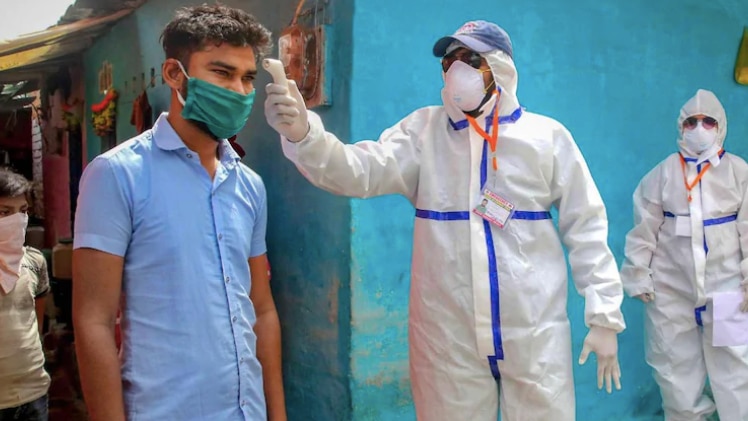
 www.indiatoday.in
www.indiatoday.in

Maharashtra imposes weekend lockdown, night curfew as Covid grip tightens | All you need to know
The Maharashtra government on Sunday announced a slew of new restrictions, including a weekend lockdown and a night curfew in the state, amid an unprecedented surge in coronavirus cases.
It's a complete disaster. Modi, Yogi, Shah and Co. are now focussed on nothing more than appearances.
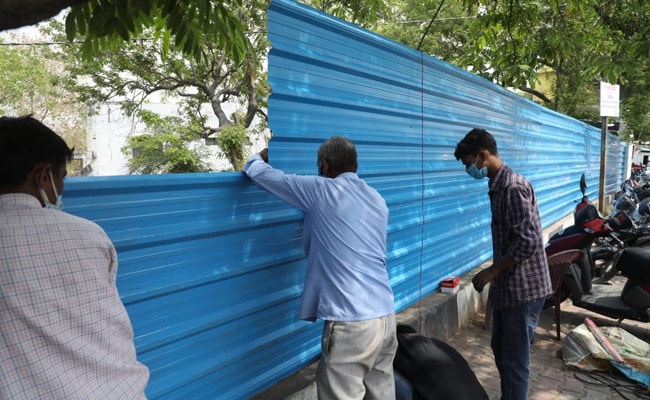
 www.ndtv.com
www.ndtv.com
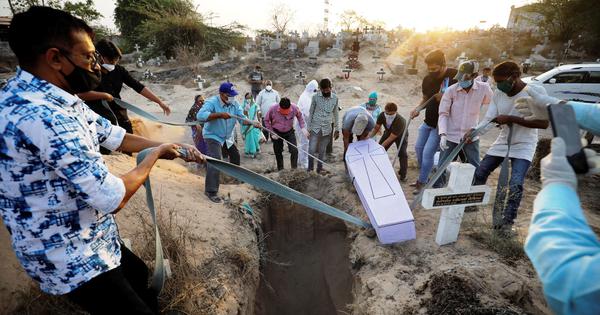
 scroll.in
scroll.in

Lucknow's 'Cover Up' Move After Dramatic Videos Of Crematorium Amid Covid
Disquieting scenes from the Lucknow crematorium of endless funeral fires and reports of irregularities in the number of deaths have sparked a response from authorities in the Uttar Pradesh capital: Block the view with blue metal sheets.

As the dead pile up in Gujarat, the state’s media is on a warpath with the government over Covid-19
Media reports from Gujarat allege that the government is severely undercounting Covid-19 deaths in the state.
You the $hit's about to hit the fan when even Times Now is reporting this although Navika still can't stop herself calling Gujarat "a model state"


